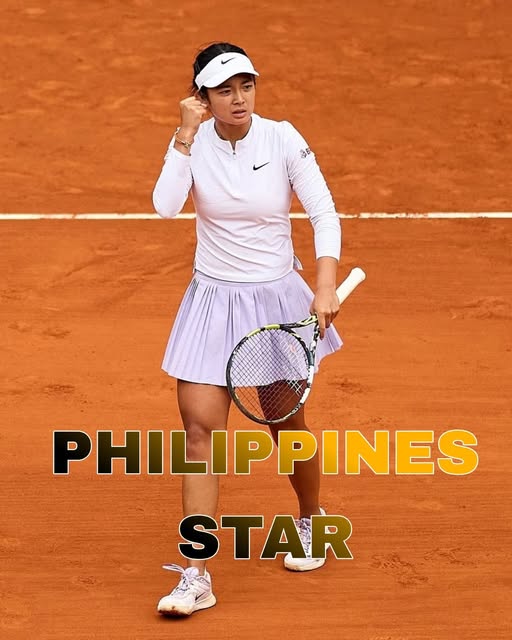Introduction

The world of Philippine tennis is buzzing once again as the Philippine Tennis Association (PHILTA) expressed its strong desire for Filipina tennis sensation Alex Eala to participate in the upcoming Southeast Asian (SEA) Games. Known for her breakthrough performances on the global stage, Alex Eala has already placed the Philippines on the international tennis map. However, her potential appearance in the SEA Games brings with it not just excitement but also pressing questions about her career trajectory, preparation, and national representation.
This move by PHILTA highlights the intersection of national pride, athletic development, and international exposure. But what does this request mean for Alex, the Philippine tennis landscape, and the nation’s medal hopes? Let’s break it down.
Why PHILTA Wants Alex Eala in the SEA Games
PHILTA’s call for Eala’s participation is not surprising. At just 19 years old, she has already achieved milestones that no other Filipina has matched:
- Youngest Filipina to win a Grand Slam juniors title (2020 Australian Open Doubles).
- US Open Junior Girls’ Singles Champion in 2022.
- Top 200 WTA ranking at such a young age.
Her presence in the SEA Games would not only boost the Philippines’ chances of winning gold in tennis but also inspire the next generation of Filipino athletes. Beyond medals, her participation would spotlight tennis as a sport of growth in the country, where basketball and boxing typically dominate.
Key Reasons Behind PHILTA’s Push
- Medal Prospects – With Eala’s skill level, the Philippines has a strong chance of clinching tennis gold.
- Public Inspiration – Her story resonates with young Filipinos, particularly aspiring female athletes.
- Global Recognition – Having an international name compete in a regional event elevates the prestige of the Games.
- Momentum Building for 2028 Olympics – The SEA Games could serve as a springboard for bigger competitions.
Alex Eala’s Balancing Act: Professional Circuit vs. National Duty
While representing the Philippines is a matter of pride, Eala’s career is currently focused on climbing the WTA rankings. The challenge lies in balancing international tour commitments with regional obligations like the SEA Games.
Challenges She Faces
- Scheduling Conflicts: The SEA Games often overlap with crucial WTA tournaments.
- Ranking Points: Unlike WTA events, the SEA Games do not offer ranking points.
- Risk of Injury: Playing back-to-back events could strain her physically.
- Career Focus: As she transitions fully into professional tennis, her priority is to break into the WTA Top 100.
This raises the question: Should Alex prioritize national representation or career progression?
Frequently Asked Questions About Alex Eala and the SEA Games
1. Will Alex Eala play in the SEA Games?
As of now, PHILTA has strongly urged her participation, but the final decision rests on Eala, her family, and her management team.
2. How many medals can she potentially win?
Eala could compete in singles, doubles, and mixed doubles — giving the Philippines a shot at 3 medals.
3. Has Alex Eala represented the Philippines before?
Yes. She has represented the Philippines in the Fed Cup (now Billie Jean King Cup) and various junior international competitions.
4. Why is her participation so important?
Her involvement boosts medal chances, enhances the prestige of Philippine tennis, and inspires the youth.
5. What does this mean for her career?
While SEA Games success won’t directly impact her WTA ranking, it strengthens her personal brand and cements her legacy as a national athlete.
The Bigger Picture: Philippine Tennis on the Rise
Alex Eala’s global success is a beacon of hope for a nation striving to establish a solid tennis program. PHILTA’s push also signals a deeper agenda — to revive tennis’ visibility in the Philippines.
Current State of Philippine Tennis
- Limited International Exposure: Few Filipino players compete at the WTA/ATP level.
- Infrastructure Gaps: Tennis facilities and grassroots programs remain underdeveloped.
- Rising Interest: Thanks to Eala, more children are being introduced to tennis.
Her presence at the SEA Games could potentially galvanize support for tennis infrastructure and funding in the Philippines.
Statistics That Matter
- Philippines’ SEA Games Tennis Record: The country has not been dominant in SEA Games tennis, often overshadowed by Thailand and Indonesia.
- Global Recognition: Eala’s WTA singles ranking currently places her among the top 200 women players worldwide.
- Youth Impact: According to sports surveys, 30% of Filipino youth athletes cite Eala as an inspiration to pursue tennis.
Key Strategies PHILTA Should Adopt to Maximize Eala’s Participation
If Alex Eala does compete in the SEA Games, PHILTA must leverage the opportunity effectively:
- Media Amplification – Showcase her matches across TV and digital platforms to inspire fans.
- Grassroots Programs – Pair her presence with youth tennis camps during the Games.
- Sponsorship Opportunities – Attract more corporate support for Philippine tennis.
- Athlete Protection – Ensure she receives medical, psychological, and logistical support.
The Emotional Pull: National Pride vs. Personal Career
Eala’s potential SEA Games journey embodies the classic dilemma of elite athletes:
- National Representation fuels emotional pride and unity.
- Career Growth ensures sustainability and future competitiveness.
For Filipinos, her participation would be a symbolic reminder that despite global commitments, home always matters. For Alex, however, the decision must balance emotional loyalty and professional pragmatism.
Actionable Insights for Fans and the Sports Community
- Fans: Rally support online to show that Filipinos want Eala in the SEA Games.
- Sponsors: Invest in programs that can complement her journey.
- Sports Officials: Prioritize athlete welfare and avoid political friction that could discourage participation.
- Young Athletes: Use her journey as a model for balancing education, career, and national duty.
Conclusion
The Philippine Tennis Association’s call for Alex Eala to join the SEA Games underscores the growing importance of her role in shaping the future of Philippine sports. While the SEA Games may not advance her WTA ranking, it offers something more valuable: a chance to solidify her status as a national icon and inspire a generation of Filipinos.
Whether she plays or not, the discussion highlights a pressing truth — the Philippines must invest in sports infrastructure and athlete support if it wants to compete globally. Alex Eala may be the spark, but it takes an entire system to build a sporting legacy.
Her choice will ultimately define not just her journey, but also the future trajectory of Philippine tennis. The nation waits with bated breath.


